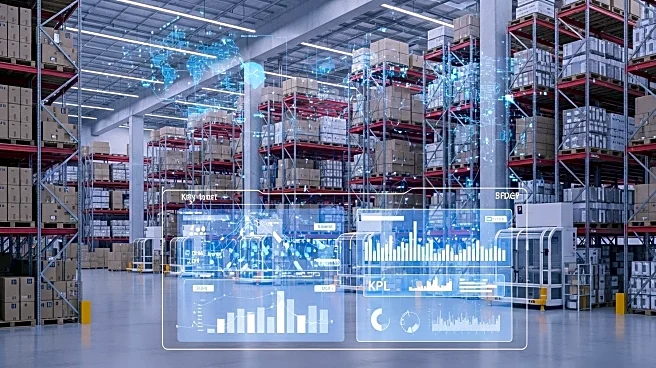What's Happening?
The logistics industry is experiencing a transformation driven by data-driven technologies and performance metrics. In 2025, real-time visibility, predictive analytics, and carrier performance management have become essential for navigating volatile global supply chains. Technologies such as IoT and digital twins enable real-time tracking, while predictive analytics optimize operations by forecasting demand and planning routes. Third-party logistics (3PL) providers are prioritizing key performance indicators (KPIs) like order accuracy and on-time delivery, using Transportation Management Systems (TMS) and route optimization software to achieve these benchmarks.
Why It's Important?
The integration of data-driven technologies in logistics offers significant financial benefits, including reduced stockouts, lower carrying costs, and improved route efficiency. For investors, firms that prioritize KPI-optimized operations and AI integration are poised to dominate the industry, aligning with global sustainability goals. The rise of automation, AI, and sustainability as key drivers of 3PL success underscores the strategic imperative for investors to allocate capital to tech platforms that embrace these trends.
What's Next?
As the logistics industry continues to evolve, the demand for data-driven solutions is expected to grow. The global AI-in-logistics market is projected to expand significantly, with fully deployed AI solutions boosting productivity. Investors should consider the broader industry trends, including the rise of automation and sustainability, as key factors in long-term value creation.
Beyond the Headlines
The logistics landscape of 2025 is defined by its reliance on data-driven decision-making. Firms that embrace KPI-optimized operations and AI integration are not only optimizing costs but also aligning with global sustainability goals, such as renewable energy-powered fleets and circular supply chains.









